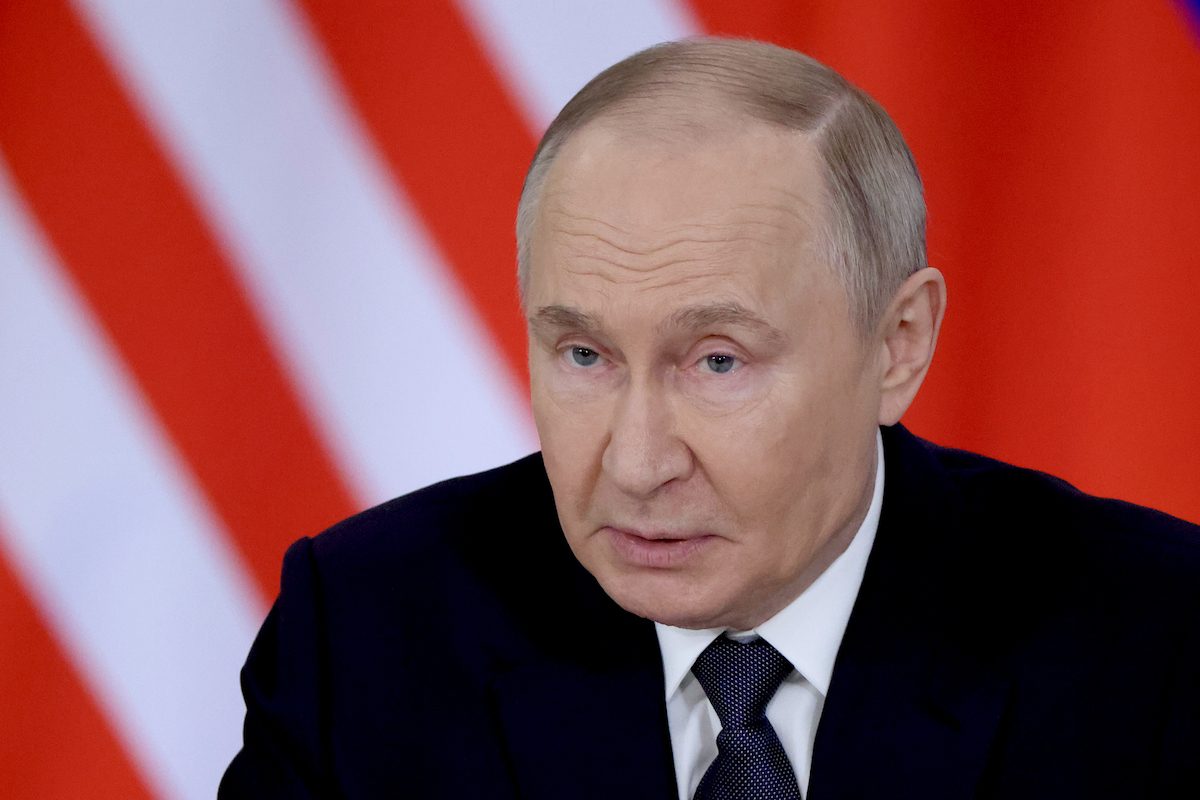All eyes were on Hungary’s Viktor Orbán at Thursday’s European Union summit in Brussels. The issue at stake was simple but vital. The EU wanted to provide more than $50 billion in aid to Ukraine over four years, but this use of the bloc’s funds required unanimity from all member states. Orbán remained unconvinced. But would he continue unmovable or would he budge? And if so what price would he demand?
Hungary has always been concerned to keep as judiciously uncommitted as possible in the Russia-Ukraine conflict. Orbán was instinctively unhappy about supporting the EU’s stance that was, whatever its virtues, highly partisan. Besides, he had other bones to pick with Brussels, such as its continued withholding of some $20 billion in Covid funds over a dispute about the rule of law in Hungary, following concerns from the bloc over judicial independence and political interference in the country. The dispute has rumbled on for over a year.
Orban is an extremely sharp politician, vastly brighter than a large number of other EU leaders
In the end, the result was an anticlimax. Within an hour an agreement was announced. Hungary approved the subvention to Ukraine, subject only to a condition that it come up for discussion yearly at the European Council. But since no country would have a veto on further disbursements this was obviously fairly meaningless.
Not surprisingly, the talk was all of a Hungarian climbdown and an Orbán defeat. EU leaders were exultant: especially Poland’s Donald Tusk, who before the meeting had reportedly answered a reporter’s question whether he had anything to say to Orbán with the words “Nothing nice.” German news channel ZDF talked of Orbán as having gambled and lost. Budapest, the consensus had it, had finally got the message that Brussels could not be pushed around.
But was this a actually a defeat at all? It depends how you look at it. If you see Viktor Orbán, as many indolent commentators do, as a far-right Kremlin stooge out cynically to blackmail the EU for all it is worth to satisfy his populist supporters at home, then maybe. After all, he did withdraw his veto threat without being offered big money from Brussels’s coffers. However, apart from the fact that he is an unlikely Kremlin cheerleader (Hungary made no bones about condemning the Russian invasion in February 2022, and has since provided consistent and sterling humanitarian assistance to Ukrainian refugees fleeing Russian brutality), one suspects Orbán’s aims in Brussels Thursday were rather different.
He is an extremely sharp politician, vastly brighter than a large number of other EU leaders, and he will have realized long ago that a continued veto of EU funds to Ukraine could never have extracted billions from Brussels. If necessary, the other twenty-six member states could provide the necessary financial commitment to Ukraine on a national basis, though admittedly not in such a streamlined way. Had he stonewalled the EU, they almost undoubtedly would have called his bluff and done so.
As it is, as he walks up the steps of the plane back to Budapest, there are oddly enough three very important gains that he can congratulate himself for.
First, although he may not have prised open the EU’s grip on the Covid billions, it seems he has been assured that none of the Ukraine funds will come from money otherwise allocated to Hungary. His triumphant tweet after the event spells it out: “Mission accomplished,” it says. “Hungary’s funds will not end up in Ukraine.” This will certainly go down very well at home, where there is a widespread perception (admittedly one thoughtfully nurtured by Orbán’s Fidesz Party, but nevertheless with a good deal of truth to it) that people are being kept unnecessarily poor because the EU does not have the country’s financial interests at heart.
Secondly, Orbán has gained big political ground. While in Brussels, he took the opportunity to tap into the growing view in Europe that the EU elite are a detached coterie that simply cannot understand ordinary people. “It’s a European mistake that the voice of people is not taken seriously,” he recently told Hungarian TV. At the summit in Brussels he very publicly closeted himself with Georgia Meloni from Italy, and the previous day, according to the Belgian press, he spoke in a very friendly way to the farmers raucously protesting in the center of the Belgian capital. All this is good for Orbán and not comforting for the pampered elite in Brussels.
In addition to this, he has placed himself very well as regards Ukraine, with which Hungary has its own dispute. The Hungarian diaspora includes 150,000 ethnic Hungarians in Ukraine. When Kyiv started a cultural assimilation policy aimed mainly at damping Russian separatism in 2017, this minority suffered collateral damage. Despite recent concessions, Budapest remains unhappy with Kyiv over this: now that Budapest has dropped opposition to EU funding for Ukraine, it may be difficult for Zelensky to resist further demands.
In short, far from being a wild-eyed extremist caving to the grown-ups in Brussels, Orbán has neatly shown the EU technocracy that he is a very shrewd negotiator who can’t be lightly sidelined. After all, Thursday’s entire summit was called because of him and revolved around him; before it took place he was also individually sweet-talked by a number of EU leaders. That’s not bad for the leader of a pretty small country with only about ten million people and a GDP per capita of about $19,000.
On this occasion Orbán may have given in relatively gracefully — and understandably, since he stood to gain nothing by continuing obstinacy. But the EU machine will be uncomfortably aware of his continued ability to make big trouble. He may be detested by the liberal elite, but he’s still the man in Europe to watch.
This article was originally published on The Spectator’s UK website.


























Leave a Reply